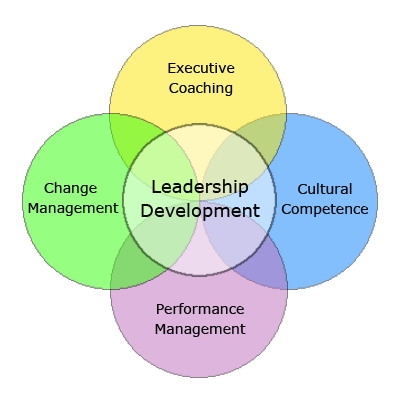Embark on a journey of leadership excellence with insights, strategies, and inspiration. Whether you’re a seasoned executive or aspiring leader, delve into the complexities of leadership, from fostering effective teams to driving organizational change. Explore the latest trends, timeless principles, and practical tips to hone your leadership skills and make a lasting impact in your professional and personal spheres.
In today’s rapidly changing business landscape, organizations face numerous challenges. To stay competitive and achieve long-term success, they must adapt, innovate, and drive progress. However, the key to surmounting these obstacles lies not only in technology or resources but in effective leadership and management. The importance of Leadership and management development cannot be overstated, as it plays a pivotal role in nurturing capable leaders and building resilient organizations that can thrive in the face of uncertainty.

1. Fostering Effective Leadership
Leadership is not an inherent trait; it can be cultivated and developed through training and experience. Leadership development programs equip potential leaders with the essential skills, such as effective communication, decision-making, problem-solving, and emotional intelligence, necessary to guide their teams toward shared goals. Effective leadership inspires trust, motivates employees, and creates a positive work environment, ultimately driving higher productivity and employee satisfaction.
2. Nurturing Future Talent
Organizations that prioritize leadership and management development build a robust pipeline of future talent. Identifying and nurturing high-potential employees within the organization helps retain top performers and ensures a smooth transition when current leaders move on or retire. By investing in their employees’ growth, organizations demonstrate commitment, which increases employee loyalty and reduces turnover.
3. Navigating Change and Uncertainty
In today’s dynamic business environment, change is constant. Leaders and managers must possess the ability to adapt to evolving circumstances and guide their teams through challenging times. Leadership development programs help leaders become more agile and resilient, enabling them to embrace change and lead by example. Organizations with strong leadership foundations can navigate uncertainty more effectively and capitalize on emerging opportunities.
4. Improving Decision-Making and Problem-Solving
Decisions made by leaders and managers can shape the future of an organization. Effective decision-making and problem-solving skills are vital to driving success and avoiding costly mistakes. Leadership and management development programs focus on teaching leaders how to analyze situations, weigh options, and make informed choices. These enhanced skills contribute to better outcomes, organizational growth, and competitive advantage.
5. Building High-Performance Teams
Strong leadership is the cornerstone of high-performance teams. Leaders with excellent management skills can identify and leverage the strengths of each team member, promoting collaboration and synergy. Leadership development fosters team-building capabilities, enabling leaders to create cohesive, motivated, and goal-oriented teams that produce exceptional results.
6. Ensuring Long-Term Organizational Success
Investing in leadership and management development is a strategic decision that ensures an organization’s long-term success. Effective leaders lay the groundwork for a sustainable and prosperous future, setting the tone for the entire organization. As leaders grow and develop, they pass down their knowledge and expertise, creating a culture of continuous improvement that permeates through all levels of the organization.

Conclusion :
In a fast-paced and ever-changing world, leadership and management development are crucial elements of organizational success. Effective leadership fosters a positive work environment, enhances employee engagement, and promotes innovation, creativity, and agility. Organizations that prioritize leadership and management development demonstrate their commitment to growth, employee satisfaction, and long-term success. By nurturing leaders who can navigate change, foster innovation, and build high-performance teams, organizations position themselves to thrive in any environment, achieving excellence in their respective industries. In today’s competitive landscape, the importance of leadership and management development cannot be underestimated—it is the key to unlocking the full potential of both individuals and organizations alike.
